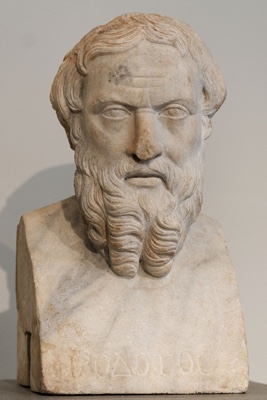What Teaching the Classics Taught Me

The present is deafening. Our inescapable hand-held technology, social media, and twenty-four-hour news easily overwhelms even the most conscientious citizen. It is as difficult to make out what really matters as it is to escape a form of communication calculated to spark outrage. When we distract ourselves from the roar of pressing issues, we “amuse ourselves to death,” as epistemologist Neil Postman put it.
Ancient history is thus cast aside as, well, ancient history. The study of the ancient peoples of the Near East and Mediterranean basin can easily strike us as a quaint relic of the Renaissance, or still of Victorian education. What does the Epic of Gilgamesh offer that we haven’t seen—many times improved—in the Star Wars franchise? How does Socrates speak to societies that have perfected heart transplants? Why should the Ides of March matter to the post-industrial West?
As a historian of the United States and Canada, I would have lent a sympathetic ear to these skeptical questions several years ago. But, having taught an early Western civilization course at one institution and twice taught ancient Greek history at another, I have joined a shrinking cohort of educators who see in the classics something so essentially lacking in our day.
Few students enroll in my Greek history course with a lofty sense of what the classics can do for them and for the world. They suspect that we will devote substantial attention to the adventures of Apollo, Achilles, and Alexander. Was it not a Greek who wrote history precisely to “preserv[e] from decay the remembrance of what men have done, and [prevent] the great and wonderful actions of the Greeks and the Barbarians from losing their due meed of glory”?
Others are no doubt lured by the common image of Classical Athens, including cultural efflorescence and a false vision of sparkling white temples and unadulterated democracy.
I become the bearer of bad news. War was inescapable throughout the early history of Hellas; gender roles were strictly defined; Greeks’ understanding of justice had little relation to our own. In hindsight, slavery makes a mockery of Athens’ democratic pretenses. The gaudy buildings are merely the coup de grâce. Fortunately, it takes little to re-channel students’ enthusiasm and have them engage with the more challenging realities of ancient Greek life.
I let primary texts, speaking for themselves, erode this romanticization. To view the distant past as an oasis, a shelter from modernity, is as problematic as our overconfident presentism. By understanding ancient Greece on its own terms, we are not fulfilling a duty to that past; we are instead undertaking the far more important work of putting vastly different cultures in conversation with one another, as Donald Kagan suggested we might.
This is in fact the task to which I tend with my U.S. history students. I might teach the tribulations of Athenian democracy in the morning and lead a discussion on Nathaniel Bacon’s rebellion in the afternoon; from Pericles’ Funeral Oration, I might have to turn to pleas for a wider franchise in the 1830s and 1840s. If my U.S. history course is any indication, the main themes of ancient Greek history are still of concern to us today—they speak directly to the modern West.
Beyond these big themes, both courses highlight the value of a history education. They provide an opportunity to develop transferable skills and cultivate empathy.
Yet there is something to be said about the significance of the classics specifically. The eminent historian of Rome, Mary Beard, recently articulated the problem and potential of ancient history, stating that “Roman history offers very few direct lessons for us, and no simple list of dos and don’ts . . . . Ancient Rome still matters for very different reasons—mainly because Roman debates have given us a template and a language that continue to define the way we understand our own world and think about ourselves.”
I think we can go one step further—and do so without claiming that certain ancient societies best expressed a universal human experience, and without erasing their distinctiveness or placing them on an unmerited pedestal, as the Greeks did of their forebears. We are not miniatures of the ancients, as Alfred North Whitehead suggested when stating that all of Western philosophy was but a footnote to Plato.
As my students successively approach Homer, Aeschylus, Sappho, Herodotus, and Plato, not to mention surviving architecture and artifacts, what strikes me most is how we (in the West at least) can still converse so effortlessly with the Greeks millennia later. We understand them not because they are an expression of the universal—apologies to Plato—but because societies that came in their wake quickly took up their language, system of thought, worldview, and material achievements. The Greeks had eager heirs.
The accessibility of their texts helps us put distance between our modernity and ourselves. What but Diogenes’ lamp could so well represent the benefits of studying the ancients? They provide the perspective that stands to illuminate the pretenses of the present. For all of our achievements, we are still deeply anchored in a past that may seem, at first glance, primitive; for all of our advances, we are still looking for an honest man. It is little wonder that my students so quickly embrace the more sophisticated Greeks that I offer them.
To assume that we cannot learn from the ancients is, ironically, to fulfill a type of hubris against which they repeatedly warned. The double recklessness of pride and presentism will, as we have been warned, lead to tragedy.
